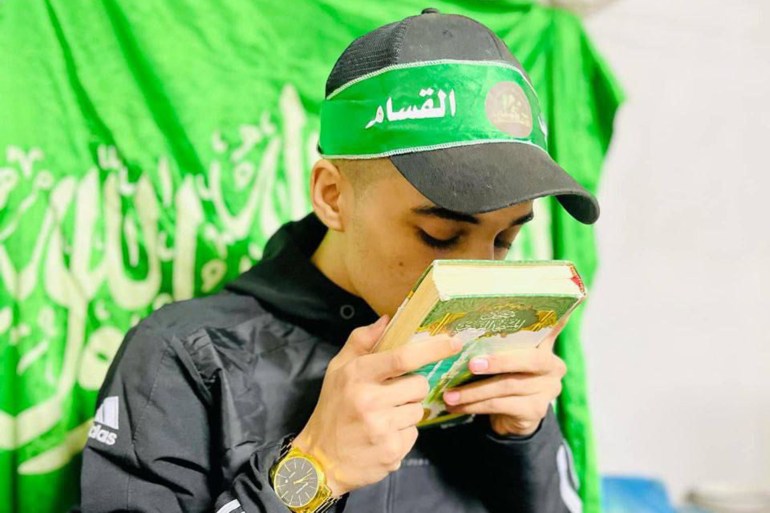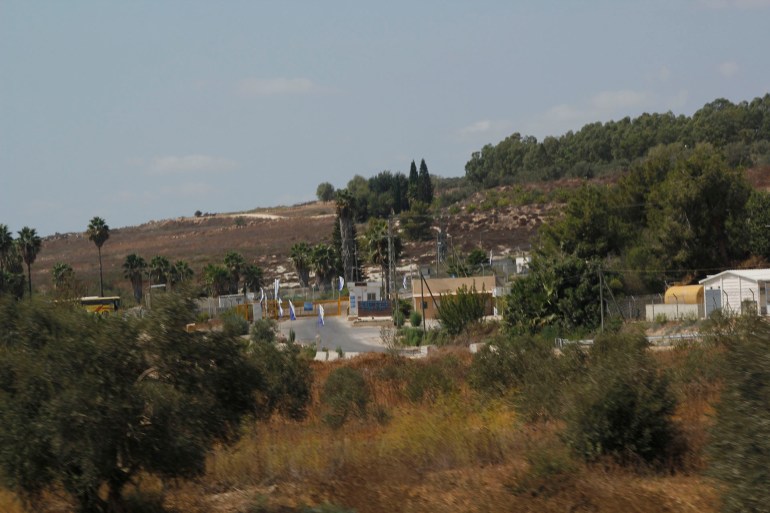The occupation takes revenge on those wanted in the West Bank by abusing their families | Politics
Qalqilya- “Dark days await you,” is how an officer from the Israeli General Security Service (Shabak) threatened the mother of martyr Tariq Ziad Daoud with dark days in his phone call in which he informed her of the liquidation of her son and the detention of his body, thus keeping the “bill of the account open,” as if the suffering the family had experienced was not enough.
Qalqilya, where the resistance to the occupation has been active – like the rest of the cities in the northern West Bank during the last two years – has become a permanent target for its raids and incursions to pursue the resistance fighters. Every time it fails to reach them, it vents its anger on their families, upon whom it has imposed the sword of collective punishment by arresting them, to pressure their wanted sons to surrender themselves.
Qalqilya city suffered more than others from the pursuit of resistance fighters and the harassment of their families, through storming their homes, tampering with their contents and destroying them. Entire families were subjected to detention, field investigation and arrest. The family of the wanted martyr Tariq Daoud set a record by storming their home more than 40 times.

The stalker family
Khaled Daoud (the older brother of the martyr Tariq) says that the occupation forces arrested his father (53 years old) and his mother (52 years old) 25 times, and they had previously arrested him and his brothers and subjected them to harsh interrogation. The arrest also included his uncles, maternal uncles and their children many times.
Dawoud added to Al Jazeera Net that the occupation forces used brutal methods during detention, the most dangerous of which were field investigations, handcuffing, and blindfolding for long hours, and sometimes for the entire period of detention, as happened with his mother.
They were also taken to army camps, not to regular detention centers and prisons, which meant more abuse and deprivation of food, drink, treatment, and even sleep. They were also detained inside caravans (mobile iron houses) under the scorching sun.
While receiving condolences for his brother’s martyrdom, Khaled spoke about the recent arrest the family was subjected to: “My mother spent 4 days in the Hawara camp south of Nablus inside a cleaning supplies room, and she was hung and tied to a chair for the entire period, amidst a deliberate shortage of water, food and medicine.”
He added, “My father was not more fortunate. One time, they released him so that an ambulance could take him to the hospital, because they refused to give him medicine during his detention, even though he and my mother suffer from chronic diseases such as high blood pressure and diabetes.”
collective punishment
The families of the wanted persons have gone through and are still going through a difficult phase. There is no specific time or form for the army or its special forces to storm the area. The occupation forces deliberately cause harm to the surrounding neighbors in order to increase the pressure, and they limit the movement of the relatives of the resistance fighters, stopping them at their military checkpoints, searching their vehicles, and so on.
Like the Dawoud family, the relatives of the wanted resistance fighter, Jibril Jibril (18 years old), were and continue to be subjected to psychological and physical torture at the hands of the occupation soldiers, who continue to raid their homes and launch arrest operations, which have so far included his father, Ghassan Jibril (58 years old), his brother, his uncle and his cousins. As for his mother, her severe illness with an open heart prevented her from being physically arrested, but she was not spared from psychological torture and threats to assassinate her son.
Gabriel's father was arrested 8 times, and was released the last time on Wednesday, along with his brother and son, where they faced the cruelty of prison and the jailer together. From the moment of his arrest, he was subjected to psychological and physical torture, and during the investigation he lived the nightmare of the threat of liquidating his son Gabriel, as they did with his martyred companion Tariq Daoud.
Ashraf Gabriel, the brother of the wanted man Gabriel, says, “After the assassination of Tariq Daoud, a few days ago, my father, my uncle, and my cousin were arrested. They kept his hands tied and his eyes blindfolded for the entire period of his detention. They did not allow him to go to the bathroom except once a day. He was detained in an iron room under the sun, until his skin was peeling off his body.”

Insistence on the right
After being detained for more than a year, the occupation forces released Tariq Daoud and his friend Jibril Jibril late last November as part of the first phase of the “Al-Aqsa Flood” prisoner exchange deal between the Islamic Resistance Movement (Hamas) and Israel.
Less than a month after their release, the two were pursued together, and the occupation forces assassinated Tariq at the entrance to the town of Azzun, east of Qalqilya, 3 days ago. Jibril remains wanted and refuses to surrender himself under all the pressure.
All the occupation's attempts and pressures on the two families to convince Tariq and Jibril to surrender themselves were fruitless. Their response was that they preferred martyrdom to surrendering, and that they would not experience torture and suffering again inside prisons.
For his part, the head of the Prisoners Club in Qalqilya, Lafi Nasoura, told Al Jazeera Net that the families of wanted persons had never faced arrests at the pace experienced by the city’s residents. He added that the raids and arrests are ongoing and have not stopped despite everything that is happening.
This was also confirmed by Amina al-Tawil, an activist defending prisoners in Qalqilya, who said that the storming of the city and its villages has become “instantaneous” and can occur at any time, day or night, in a way that confuses the residents and destroys their economic and living lives.
“The revolutionary situation and the military formations that began in Qalqilya Governorate, even if they are small, constitute a security concern for the occupation,” Al-Tawil added in her interview with Al Jazeera Net, whether in terms of their proximity to the separation wall between the interior occupied in 1948 and the West Bank, or their proximity to the settlements that surround the city, “and therefore the occupation is trying to nip this situation in the bud and end it before it expands.”
She says, “Despite the deterrence and intimidation the occupation has done to the families of the wanted persons, to dissuade them from continuing the struggle and to inflict severe moral and material harm on them, this policy has proven to be a failure,” despite its cruelty to the families of the wanted persons.
Regarding the wanted man’s motivation for not surrendering himself, despite all the oppressive and pressing circumstances, Al-Tawil attributes this to “his complete belief in his right to defend himself and his people and resist the occupation, and his failure to think about peaceful solutions when he decided to continue on the path of resistance.”
